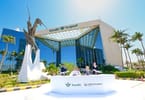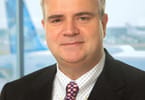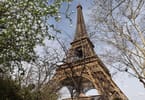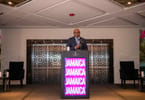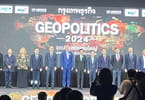On July 19 the Minister of Tourism from Zimbabwe, Dr. Walter Mzembi dropped a bomb shell when he requested an agenda point to be added to the upcoming UNWTO Assemblea General a Chengdu Xina al setembre.
Dr. Taleb Rifai, the current Secretary General responded on July 29 to Mzembi and writes:
Any agenda item proposed by a Member of the Organisation (…) shall be accompanied by a reportar (…) that sets the framework for the debate and includes, as appropriate, requests on actions to be taken by the General Assembly in the form of recommendations or decisions, serving as a resource and reference for delegations to seek instructions and prepare their position on the matter”.
On August 9 the outspoken Zimbabwe tourism leader submitted his reports in details outlining what had happened, and why he thinks the election process was flawed.
PROPOSED ADDITION TO AGENDA ITEM NO 9
Discussion of the UNWTO Executive Council Election of the Secretary General (2018-2021), held in Madrid, Spain, on 12 May 2017
Segons el Carta oberta of 12 June, 2017, addressed to all UNWTO Member States, it is the contention of the Republic of Zimbabwe that the 12 May elections in Madrid were marred by a number of procedural and other irregularities which, taken together, served not only to undermine the integrity of the process but also to cast doubt upon the soundness of an outcome produced by what was clearly a profoundly flawed process.
In essence, the procedural and other irregularities include
The decision by the Secretariat to delay by 2 days, informing the Executive Council of the receipt of a written communication from the Head of State of the Republic of Seychelles to the effect that the Government of Seychelles had withdrawn its endorsement of Mr Alain St Ange as a candidate for the post of Secretary General of the UNWTO;
The decision by the Secretariat to make this information public only when the Council began to consider the Agenda Item relative to the election itself;
The decision by the Secretariat – even though it was fully aware of the position of the Seychelles Government – to condone the continued active presence and participation of Mr St Ange, Com a declared “candidate”, A la UNWTO proceedings;
The decision to allow the by-then disqualified candidate to address the Executive Council immediatament anterior to the vote taking place; and to allow him to address the Council for considerably in excess of ten 10 minute limit imposed upon the remaining valid candidates;
The decision to permit, without any restraint or caution, the undisguised criticism, by St Ange, of the African Union and, by implication, the African Union-endorsed candidate for the post of UNWTO Secretari general;
The decision, by the Secretariat to completely skip, or to allow to be skipped, the crucial 2nd Pas dels UNWTO electoral process as confirmed in its Aide Memoire of 5 May, 2017, addressed to all UNWTO Member States, namely the provision for a Restrictive Private Meeting at which the Chairperson “(…) will moderate a discussion on the candidates".
The General Assembly is requested to interrogate the process which unfolded in Madrid on 12 May, 2017 and to seek explanation and/or justification from the Secretary General with regard to the irregularities and procedural lapses listed above.
The General Assembly is requested to endorse the second addition to the Agenda proposed by the Republic of Zimbabwe, namely “Discussion of the UNWTO Rules of Procedure on the Conduct of Elections”, as Agenda No 9(b), and to direct the Secretariat to embark upon an immediate and thorough review of the existing Rules of Procedure so as to ensure that the lapses and irregularities which marred the May 12 election in Madrid cannot be repeated.
The General Assembly is requested to endorse the proposal by the Republic of Zimbabwe that Agenda Item No 9 of the Provisional Agenda of the 22nd Sessió de la UNWTO General Assembly, namely “Appointment of the Secretary General of the UNWTO for the period 2018-2021 on the recommendation of the Executive Council”, be made Agenda No 9(c)
On the basis of the foregoing, and so as to remove any doubt any Member State may harbour with regard to (i) the conduct of the election in Madrid on 12 May, 2017, and (ii) the soundness of the outcome thereof, the General Assembly is requested to conduct the Agenda Item relating to the Appointment of the Secretary General of the UNWTO for the period 2018-2021 on the recommendation of the Executive Council on the basis of a Vote.
Such a confirmatory vote, accompanied by a clear directive from the Member States to the Secretary General to oversee a complete review of the Rules of Procedure governing UNWTO elections, will give confidence to Member States with regard to the Madrid election outcome and will enhance the integrity of the Organisation as a whole.
Of immediate relevance to the General Assembly must be the question of a clear, rules-based way-forward in the event that the vote does not produce the requisite two-thirds majority result.
The General Assembly is requested to consider a proposal that, in the event of such a scenario, the General Assembly should order a re-run of the election, with the participation of all five valid candidates, and with the electoral process beginning at the stage where the irregularities began.
It may be necessary to convene an extraordinary Executive Council meeting dedicated specifically to this purpose.
The following pages contain a more detailed account of the launch and roll-out of the Election Process and provide further justification for the contention that that Process was deeply flawed.
Announcement of a Vacancy – Call for Submissions from Candidates
In October, 2016, a formal announcement of the forthcoming vacancy at the head of the UNWTO was made. The same announcement called for those interested in contesting for the post to submit the requisite documentation to the UNWTO Secretariat (Legal Counsel) by midnight on 11 March, 2017.
The Secretariat also communicated that the election would be held during the 105th Meeting of the Executive Council, to take place in Madrid, Spain, from 11 to 12 May, 2017.
In this case, the requisite documentation was as follows:
Letter of the Candidate
Curriculum Vitae of the Candidate (2 pages)
Statement of Policy and Management Intent (6 pages)
Certificate of Good Health signed by a recognised medical facility
Letter of support from the Government of the country nominating the Candidate
The African Candidate
As has been well-documented, the African candidate – in the person of Hon Dr Walter Mzembi (M.P.) of Zimbabwe – announced his intention to run for the post as early as 1 April, 2016. At that stage he had already secured the unanimous endorsement of the 15 Southern African Development Community (SADC) member states. On 17 July, 2016, he received the unanimous endorsement of African Heads of State and Government at the AU Summit held in Kigali, Rwanda.
From that point forward, he campaigned on the basis of being the African Union-endorsed candidate for the post of UNWTO Secretary General. In all instances, African countries were unanimous and party to this endorsement from SADC right up to the AU.
Seychelles enters the Race
On 28 December, 2016, the Minister of Tourism of Seychelles, Mr Alain St Ange, announced that he was resigning his Cabinet post in order to enter the contest for the post of UNWTO Secretari general.
This candidature, from another African country, which was to continue until the eve of the election itself – at which point, at the request of the African Union Commission, the Government of Seychelles withdrew its nomination of Mr St Ange – served to confuse members of the Executive Council, and is a material component of the flawed electoral process which then ensued.
Submissions Deadline Passed – 7 Valid Candidatures
Following passage of the deadline, and following scrutiny of all documentation submitted by aspiring candidates, the UNWTO Secretariat subsequently announced that there were a total of 7 valid candidatures. A further seven candidatures were pronounced invalid.
On 15 March, 2017, a Note Verbale was sent by UNWTO Secretariat to all Member States informing them of the valid candidatures received. The seven were as follows:
Armenia – Mr Vahan Martirosyan
Brazil – Mr Marcio Favilla
Colombia – Mr Jaime Alberto Cabal Sanclemente
Georgia – Mr Zurab Pololikashivili
South Korea – Ms Dho Young-shim
Seychelles – Mr Alain St Ange
Zimbabwe – Mr Walter Mzembi
Armenia Withdraws – 6 Valid Candidatures
On 10 April, 2017, the Secretary General received an e-mail from Mr Vahan Martirosyan (Armenia) informing him that “due to unforeseen circumstances” he was withdrawing his candidature for the post of UNWTO Secretari general.
18 d'abril - UNWTO Communication of the Election
On 18 April, 2017, the UNWTO Secretariat circulated a document to all Executive Council Member States entitled “Recommendation by the Executive Council to the General Assembly of a nominee for the post of Secretary General for the period 2018-2021".
Apart from listing the valid candidates and attaching, in annexure, their respective CV’s and Statements of Policy and Management Intent, the document also provided a “Reminder of the Rules and Procedures in force for the election of the Secretary General of the Organisation (2018-2021)".
Key elements of this reminder were:
Statutory and Regulatory Texts
Article 22 of the Statutes
“The Secretary General shall be appointed by a two-thirds majority of Full Members present and voting in the Assembly, on the recommendation of the Council, for a term of four years. His appointment shall be renewable.”
A més, UNWTO communication of 18 April, 2017 reminded Executive Council Member States of the agreement reached by the Council at its 104th session in Luxor, Egypt, with regard to the “Procedure for the Nomination of the Secretary General of the (UN) World Tourism Organisation".
In terms of that agreement, the following rules and procedure apply to the candidature process:
Only nationals of member states of UNWTO may be candidates;
Candidates shall be formally proposed to the Executive Council, through the Secretariat, by the governments of the States of which they are nationals;
Voting shall be conducted by secret ballot in accordance with the Guiding Principles for the Conduct of Elections by Secret Ballot attached to the Rules of Procedure of the General Assembly;
The vote shall be decided in accordance with Article 30 of the Statutes and Rule 28 of the Council’s Rules of Procedure, by simple majority, defined as 50% plus one of the valid ballots cast;
The selection of one nominee by the Council shall be conducted, in accordance with Rule 29 of the Council’s Rules of Procedure, during a private meeting, part of which shall be a restrictive meeting, as follows :
a) Discussion of candidates shall be conducted during a restrictive private meeting at which only voting delegations and interpreters shall be present : there shall be no written record and no tape recording of the discussions;
b) During the balloting Secretariat staff necessary to assist with the voting shall be admitted;
The Executive Council decides not to recommend a candidate proposed by the government of a member State in unjustified arrears (paragraph 12 of the Financing Rules attached to the Statutes);
The Council shall select only one nominee to be recommended to the Assembly;
El UNWTO communication of 18 April, 2017, also laid down the types of meetings provided for with regard to the nomination of the Secretary General, as agreed under Decision 11(LIV) of the Executive Council.
That Decision provides for two types of meetings – both private – to nominate the Secretary General, namely
A restrictive private meeting, I
A normal private meeting;
Elaborating further on the above-cited meetings, the UNWTO communication of 18 April, 2017, reminded Executive Council members of the following:
Restrictive Private Meeting
During the restrictive private meeting, which will precede the normal private meeting, the Executive Council shall conduct a “discussion of candidates”. Only voting delegations and interpreters shall be present during this meeting.
Normal Private Meeting
During the normal private meeting, the Executive Council votes to select a nominee to the post of Secretary General. This meeting may be attended by Full, Associate and Affiliate Members (though, of course, without participating in the vote), which, according to the provisions of Rule 1 of the Rules of Procedure of the Executive Council, have the right to participate in the work of the Council.
Confirmatory Aide-Memoire from UNWTO on the Electoral Process
An Aide-Memoire compiled by the UNWTO Legal Counsel and made available to delegations by the UNWTO Secretariat on 5 May, 2017, further clarified the steps to be followed by the Executive Council “for the selection of a nominee for the post of Secretary General in the period 2018-2021".
Step 1 Presentations by the Candidates
The Candidates will make an oral presentation of their candidacy (10 minutes each), called by the Spanish alphabetical order of their surnames, as follows :
1) Mr Jaime Alberto Cabal (Colombia)
2) Ms Young-shim Dho (Korea)
3) Mr Marcio Favilla (Brazil)
4) Mr Walter Mzembi (Zimbabwe)
5) Mr Zurab Pololikashivili (Georgia)
6) Mr Alain St Ange (Seychelles)
Step 2 Restrictive Private Meeting : Discussion of the Candidates
Prior to the voting, the Chair will moderate a “discussion on the candidates”in a restrictive private meeting. This restrictive private meeting can be attended only by :
1) Members of the Executive Council (delegations from Full Members), duly accredited;
2) Interpreters and if requested by EC Members, any other staff of the Secretariat;
3) Note : Recording is forbidden and Candidates are NOT allowed at the meeting;
Step 3 Normal Private Meeting: Vote by Secret Ballot
After the discussion, the Council will convene again in a normal private meeting and will hold voting by secret ballot. The decision will be taken by simple majority. The normal private meeting can be attended only by :
1) All Full Members of the Executive Council, duly accredited;
2) Altres UNWTO Full Members, the Representative of Associate Members and the Representative of Affiliate Members of UNWTO, as observers;
3) Chairs of Regional Commissions;
4) Interpreters and necessary staff from the Secretariat;
Official Communication from the Government of Seychelles Withdrawing Endorsement of their Candidate – Mr St Ange
On 10 May, 2017 – the day before the official convening of the 105th reunió de la UNWTO Executive Council – the President of the Seychelles addressed a letter to the Secretary General of the UNWTO informing him the Seychelles Government, as the legitimate nominating authority, had withdrawn the candidature of Mr Alain St Ange.
On the morning of 11 May, 2017, the Secretary General confirmed to His Excellency Ambassador Ehouzou, the AU Representative to the UN Organisations in Geneva, having received the communication from Seychelles on the evening of 10 May.
D'acord amb el Rules of Procedure for the Nomination of the Secretary General, it is clear that the validity of a candidate’s candidature eposes on the official nomina tion thereof by the State of which that candidate is a national.
Once that nomination has been withdrawn, the candidate is no longer a valid candidate and should simply withdraw from the entire process.
Notwithstanding, this eleventh-hour development, Mr St Ange remained visible, present and active in the conference facility, stated that he had engaged legal counsel to challenge (i) the decision communicated by his Head of State, and (ii) to block any movement by the UNWTO Secretariat to remove him from the ballot paper in alignment with the communication from his Government, and maintained that whereas his Government may have withdrawn its nomination delete of his candidature, he himself, as the candidate, had not withdrawn his candidature.
It appears that, in this approach, he may well have had the active condonation of the Secretariat itself.
El UNWTO Secretariat Professes Ignorance About the Seychelles Communication
When engaged on the morning of 11 May – i.e. after the start of the Executive Council meeting and just one day before the vote – the Chairman of the Executive Council professed ignorance, averring that ‘UNWTO knows nothing about the withdrawal by Seychelles of its nomination of St Ange’s candidature’.
El UNWTO Secretariat – Complicit in Sowing Confusion and Undermining African Unity
Given that the Secretary General himself confirmed having received the official communication from the President of Seychelles on the evening of 10 May, it is clear that by failing to communicate this development to the Executive Council Presidium (Azerbaijan, Serbia and Zambia), the Secretariat was complicit in (i) delaying a formal announcement of Mr St Ange from the race and (ii) sowing confusion amongst Executive Council members with regard to the status of the Seychelles candidate.
The formal announcement of the withdrawal of Mr St Ange as a candidate and the subsequent removal of his name from the ballot paper was only formally communicated to the Executive Council on the morning of 12 May, when the Agenda Item relating to the election was broached – literally minutes before the initiation of the voting process leading to the election of a new Secretary General of the UNWTO. PROPOSED ADDITION TO AGENDA ITEM NO 9
El UNWTO Secretary General Questions the Legality of the Communication from the Seychelles Head of State
In his announcement on the matter to the Executive Council, the Secretary General stated that he had received a letter from the President of Seychelles informing him that the Government of Seychelles had decided to withdraw its endorsement of Mr St Ange’s candidature.
He went on to characterise the letter from the Seychelles Head of State as “legally flawed”, but did not elaborate upon that statement, nor did he request the UNWTO Legal Counsel to explain what those flaws might be.
Questioning the letter from the President of a nominating country was unwarranted, especially from the Secretary General who has/had at his disposal the means, latitude and mechanisms to contact the government of Seychelles for confirmation.
The Disqualified Seychelles Candidate Is Given the Floor
The Secretary General then gave the floor to the Head of the Seychelles delegation – the Minister of Tourism of Seychelles – to formally announce the withdrawal of Mr St Ange from the race.
In an unprecedented move, the Minister of Tourism of Seychelles then asked for the now disqualified and withdrawn Seychelles candidate, Mr St Ange, to be allowed to address the Executive Council.
Although there were no objections raised by any delegation when the Secretary General asked if Mr St Ange could address the Executive Council, it was clearly irregular for the Secretary General to do so or for the Chair to allow it – especially for a candidate who had been formally withdrawn by his government.
The fact that there was no objection from the floor does not cure the irregularity and it was incumbent upon the Chair and/or the Secretary General to immediately disallow such a request.
It would appear that Member States were taken advantage of, either through their lack of appreciation of applicable rules or their misunderstanding of what the disqualified candidate was seeking to achieve by way of an address to the Executive Council.
As matters turned out, this irregularity constituted a pivotal, indeed critical event as the address by the disqualified candidate was prejudicial to the electoral chances of Dr Mzembi.
Mr St Ange was given the floor. PROPOSED ADDITION TO AGENDA ITEM NO 9
The fact that he read from a prepared text which spoke to the fact of the withdrawal, by the Government of Seychelles, of his candidature, would suggest that he had advance notification that, even though disqualified, he would be allowed to address the Executive Council.
Mr St Ange spoke for in excess of 15 minutes – far longer than the 10-minute limit allocated to the 5 valid candidates who remained in the race. His address, although carefully worded, was laced with criticism of the African Union – which he accused of arm-twisting his Government, under threat of sanctions, into withdrawing its nomination of his candidature – and was clearly meant to undermine the candidature of Hon Dr Mzembi, the AU endorsed candidate, just few minutes before the voting started.
The address by Mr St Ange and the characterisation of himself and his ‘small island developing state’ as victims of a bullying African Union, undoubtedly influenced opinion within the Council and served to create an unfair, unjust and unequal playing field : one inimical to the conduct of a fair election.
In the same vein, it should be noted that, in the immediate wake of the decision by his Government to withdraw his candidature, Mr St Ange either published or caused to be published media articles such as that attached to this submission, entitled “Seychelles candidate calls for UN to disqualify Zim in UNWTO election alleging that AU blackmailed his country".
Although his Government had officially communicated that, in withdrawing its nomination of his candidature, it was aligning itself with the AU and the AU-endorsed candidate, Mr St Ange made no effort to endorse the African Union nor the AU-endorsed candidate : nor did he highlight that his country was party to both the SADC and the African Union decisions to endorse Dr Mzembi as the AU candidate for the post of UNWTO Secretari general.
Mr St Ange received sustained applause from the Executive Council members and it is beyond doubt that that specific 15-minute intervention, targeted and critical of the African Union, was designed, well calculated and even facilitated by the Secretariat, to undermine the African Union candidate and to prejudice his chances of winning the election.
The Executive Council Is Hurried Towards The Election – No Discussion about or Evaluation of Candidates
The Chairman of the Executive Council then proceeded straight to initiate the process leading to the election.
As indicated above, this began with – 10-minute presentations by all valid candidates to the Executive Council in the order indicated, but, PROPOSED ADDITION TO AGENDA ITEM NO 9
obviously, without the participation of Mr St Ange – the withdrawn Seychelles candidate.
This process proceeded smoothly and without cause for concern.
Following Step 1, the Chairman announced the beginning of the voting process and requested candidates to leave the room.
Step 2 – the “Discussion on the Candidates” was completely bypassed.
The Executive Council was therefore hurried towards the actual vote without any time or space having been allocated to the stipulated “discussion on the candidates”, or any form or process of discussion about or evaluation of the 5 candidates remaining in the race.
Documentary requirements of all candidates included a 2-page Currículum vitae and a 6-page Statement of Policy and Management Intent.
These key documents provide (i) a concise but nevertheless detailed synopsis of the candidate’s academic and professional qualifications relative to the position being sought; and (ii) a comprehensive synopsis of the vision of each candidate for the future development of the UNWTO under his/her leadership.
No effort was made by the Chairman nor by the Secretariat to seek or to encourage any debate or discussion on the candidates, on their relative strengths and weaknesses, or to compare, contrast or in any way evaluate their respective visions for the future.
No Discussion on the 10-Minutes Presentations by Candidates
There was no debate or discussion following the 10-minute presentations by each candidate.
There was no explanation given by the Secretariat for the decision to bypass Step 2 and to proceed, with inordinate haste, to Step 3 – the election itself.
The Ballot
The election was held over two rounds of balloting. All 5 candidates participated in the first round. Only the two candidates receiving the highest number of votes from the first round proceeded to a run-off second round vote. These were Zimbabwe and Georgia.
In the second round of voting, Georgia received 18 votes. The Georgian candidate was therefore declared to be have been nominated as the winner to became the UNWTO Secretary General-elect.
PROPOSED ADDITION TO AGENDA ITEM NO 9
Concern Over a Flawed Process and the Integrity of the Outcome
Since the election, a number of Executive Council Member States and the General Membership have expressed their concerns at the flawed election process in Madrid – specifically the failure by the Secretariat to ensure strict compliance with the Rules of Procedure with regard to ‘moderating a discussion on the candidates’, as well as to ensure a level playing field for the election and to guard against causing prejudice to any candidate.
QUÈ TREURE D'AQUEST ARTICLE:
- The General Assembly is requested to endorse the second addition to the Agenda proposed by the Republic of Zimbabwe, namely “Discussion of the UNWTO Rules of Procedure on the Conduct of Elections”, as Agenda No 9(b), and to direct the Secretariat to embark upon an immediate and thorough review of the existing Rules of Procedure so as to ensure that the lapses and irregularities which marred the May 12 election in Madrid cannot be repeated.
- The decision by the Secretariat to delay by 2 days, informing the Executive Council of the receipt of a written communication from the Head of State of the Republic of Seychelles to the effect that the Government of Seychelles had withdrawn its endorsement of Mr Alain St Ange as a candidate for the post of Secretary General of the UNWTO;.
- The General Assembly is requested to endorse the proposal by the Republic of Zimbabwe that Agenda Item No 9 of the Provisional Agenda of the 22nd Session of the UNWTO General Assembly, namely “Appointment of the Secretary General of the UNWTO for the period 2018-2021 on the recommendation of the Executive Council”, be made Agenda No 9(c).




